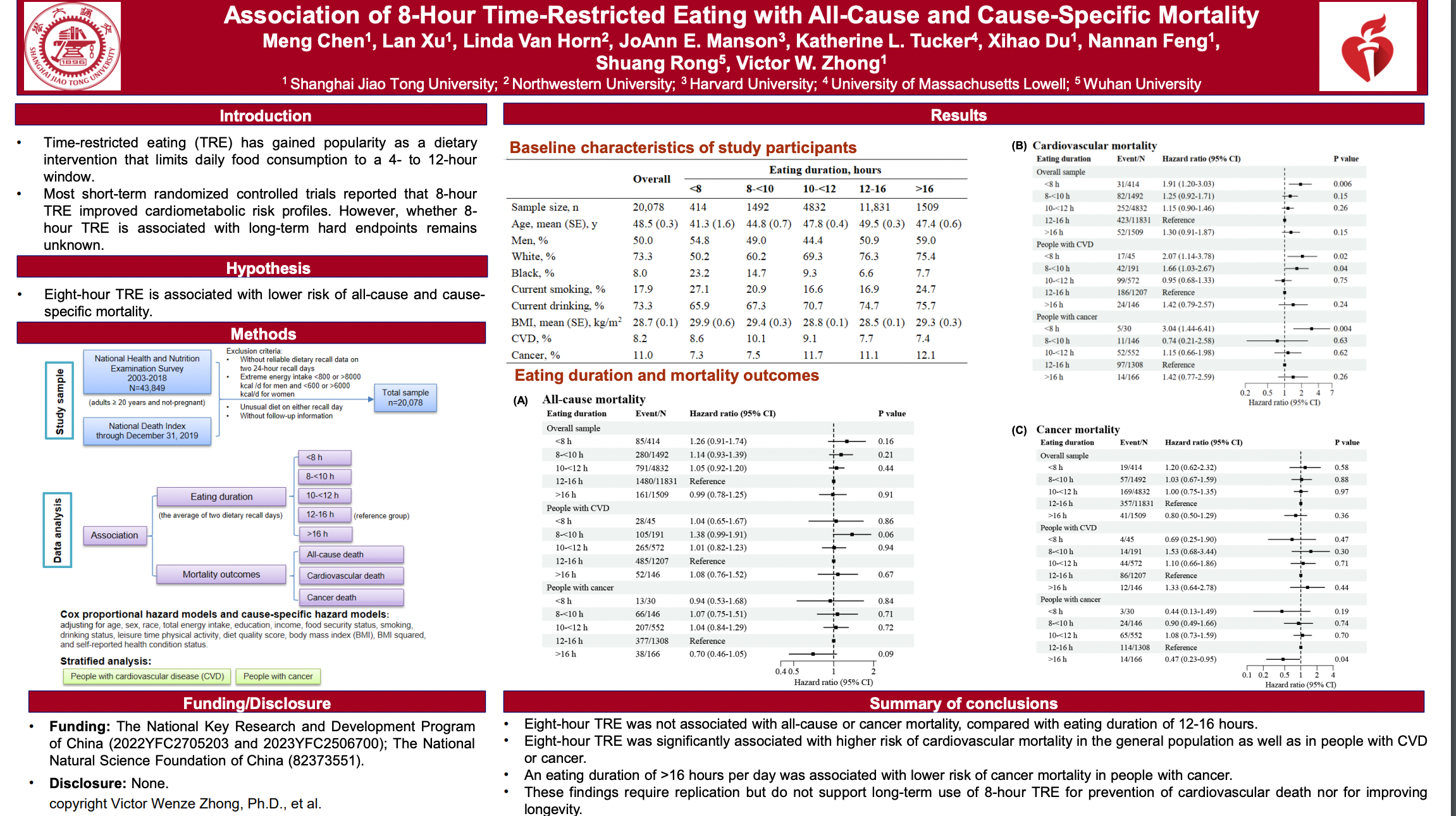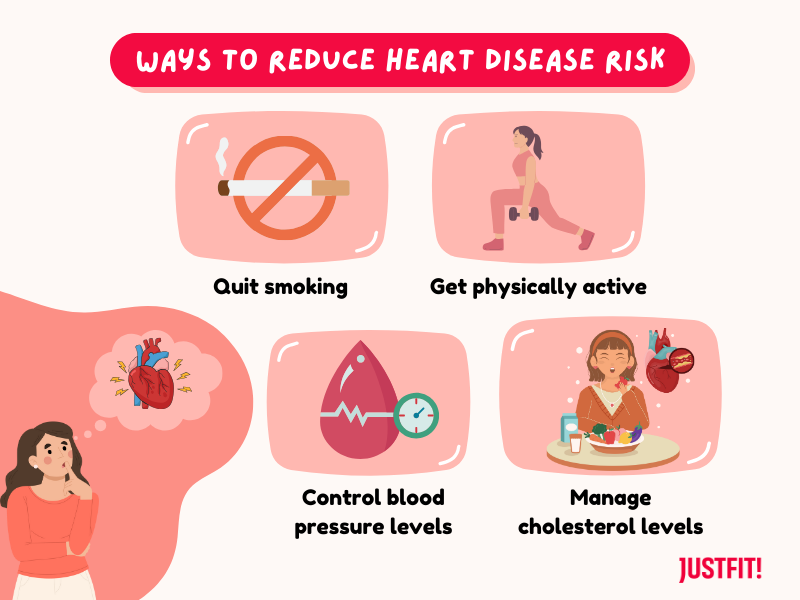




Is it really safe for you to do intermittent fasting? Intermittent fasting is a popular method used by many people to lose weight. However, an early research presented at a medical conference by the American Heart Association has sparked concerns and speculations over intermittent fasting and heart disease risk.
Keep reading to find out more about it!
Research Study Controversy
Recently in March, there was a news release headlined: ‘8-hour time-restricted eating linked to a 91% higher risk of cardiovascular death’. This surprise headline led to various media outlets publishing articles questioning the safety of intermittent fasting, referencing back to study findings.
However, experts have warned about the need to exercise caution because of the premature research.
The Study Background

Intermittent fasting, also known as the time-restricted eating (TRE) window has gained popularity as a dietary approach for weight loss. It involves eating and fasting for specific periods of time. You would have probably heard of the 16:8 diet, which involves fasting for 16 hours and eating within an eight-hour window.
The study investigated the potential long-term health complications of following an 8-hour eating window. Obtaining information from a National Health and Nutrition Examination Survey (NHANES) of 20,000 people, they analyzed and found that:
- People who ate fewer than eight hours a day had a 91% higher risk of death due to cardiovascular disease compared to those who ate across 12 to 16 hours.
- Those with existing cardiovascular disease or cancer had an increased risk of cardiovascular death.
- Those who eat more than 8 hours but less than 10 hours a day have a 66% higher risk of death from heart disease or stroke.
- Time-restricted eating did not reduce the overall risk of death.
You may like this related article: Intermittent Fasting by Age Chart: A Guide on How it Works
Limitations of the Study
While the researchers were able to obtain results and draw conclusions based on the survey, there were limitations to the study. Some of the limitations included:
- Relying on self-reported dietary information by participants: may be inaccurate due to the patient’s memory recall.
- Inability to accurately assess typical eating patterns.
- Factors that may affect health aside from eating habits and cause of death.
- Nutrient quality of the diet consumed by each individual.
Based on these limitations, the findings are deemed premature and inconclusive. The study has also not been published nor peer-reviewed, making a concise evaluation difficult. According to Dr Arina Cadariu in a post, she shares that “it is prudent to refrain from altering health practices based on such preliminary information.” Other health experts have also criticized the study, calling it “problematic” [2].
Can intermittent fasting be damaging?
“Whether any eating pattern is damaging largely depends on the nutritional quality of the foods comprising it and whether it’s aligned with your calorie needs. Intermittent fasting is more likely to be damaging to your heart if your eating windows are made up of ultra-processed, high-saturated-fat foods and sugary beverages.” — Lauren Panoff, MPH, RD
The Benefits of Intermittent Fasting for Heart Health
In fact, this one study alone isn’t enough to prove that intermittent fasting is a cause of heart disease. Many other research and studies done in the past have revealed that there are notable upsides to doing intermittent fasting.
A team of researchers found good evidence that intermittent fasting has the potential to reduce waist circumference, fat mass, triglycerides, and bad cholesterol levels, and improve blood pressure and blood sugar [3].
Dr. Armen Yerevanian, an endocrinologist also affirms that intermittent fasting generally has a ‘good safety profile’ [3].
Is intermittent fasting good in the long term?
“Certain approaches to intermittent fasting may have long-term health benefits, but that depends on the nutrient density of the foods in your eating window. Prioritizing minimally processed foods like fruits, vegetables, whole grains, nuts, seeds, and legumes, while staying physically active and fueling your body well is key. Heath is about much more than the timing of your meals.” — Lauren Panoff, MPH, RD
Ways to Reduce Heart Disease Risk
Since we can’t say for certain whether intermittent fasting truly increases the risk of heart disease or not, it is best to look for other proven strategies to help reduce heart disease risk. Here are 4 ways:
- Quit smoking: If you are a smoker, it’s time to quit the habit. It has been shown that smokers are twice as likely to suffer from a heart attack, compared to non-smokers.
- Start getting physically active: Exercising or becoming physically active is crucial. People who don’t exercise and lead unhealthy lifestyles are more likely to get heart disease compared to those who do.
- Control blood pressure levels: Hypertension or high blood pressure, is one the most common heart disease risk factors. It is important to exercise, eat healthily, or take medicine to control your blood pressure.
- Manage cholesterol levels: High cholesterol also contributes to an increased risk of heart disease. You can manage cholesterol levels by eating a low-cholesterol diet and reducing the consumption of saturated fats and refined sugars.

If you are looking for a way to manage your diet and exercise more, try out JustFit app. The app offers fitness and wellness tips and a collection of at-home workout videos that you can refer to, to stay active. Try it now for free!
Conclusion
All in all, whether it is really safe to do intermittent fasting would depend on your health condition. Generally, those who are under 18 years old, pregnant, breastfeeding, or with diabetes are not encouraged to follow this eating pattern. When it comes to any new research or study, you should not believe it for what it is until there are more studies and evidence to back the claims up.
More related content:
7-Day Weight Loss Low-Carb Diet To Achieve Your Dream Body
No Sugar No Flour Diet: The Ultimate Fat-Burning Solution
The No-Sugar Diet: What Is It and Is It Safe?
Is intermittent fasting good for heart disease?
Who should not do intermittent fasting?
Can you live 20 years with heart failure?
American Heart Association (2024) 8-hour time-restricted eating linked to a 91% higher risk of cardiovascular death [online]. Available at: https://newsroom.heart.org/news/8-hour-time-restricted-eating-linked-to-a-91-higher-risk-of-cardiovascular-death Callahan, A. (2024) Is Intermittent Fasting Bad for Your Heart? Here’s What We Know. [online]. Available at: https://www.nytimes.com/2024/03/20/well/eat/intermittent-fasting-study.html Corliss, J. (2024) Can intermittent fasting improve heart health? [online]. Available at: https://www.health.harvard.edu/heart-health/can-intermittent-fasting-improve-heart-health





